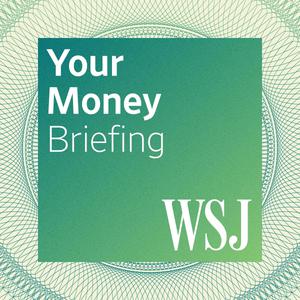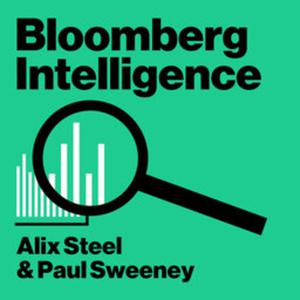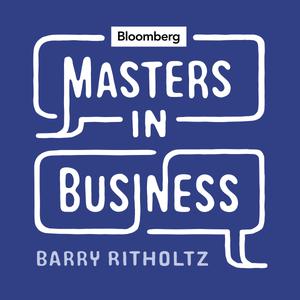
Trading Perspectives: An Economic Podcast
Sara McPherson
Trading Perspectives with John Norris
- 25 minutes 4 secondsIs the News About Artificial Intelligence for Real?
This week, a Chinese company named DeepSeek shocked the markets by claiming it had made huge advancements in Artificial Intelligence at a fraction of the cost and effort of the big tech giants in the United States. Is it too good to be true? Further, what would it mean for the average worker if the AI industry were able to expand even more rapidly than currently imagined? Will there be any jobs left? Or will our computers, tablets, smartphones and other devices put us all out of work?
In this Trading Perspectives, Sam Clement and John Norris discuss the startling revelations and practical implications from the news out of the AI sector this week.
30 January 2025, 3:48 pm - 26 minutes 35 secondsOne Week Down, 207 to Go
The first week of Donald Trump’s second term in office was a whirlwind of activity. What surprised some people was he did a lot of what he said he was going to do, even some of the head-scratching stuff. However, how much was political posturing and how much was actually trying to govern more effectively? Did any of the executive orders make economic or societal sense? How much more can we expect and what will the economic ramifications be?
In this week’s Trading Perspectives, Sam Clement and John Norris discuss the first week of President Trump’s second Administration. You can love or hate what he did, but the sun still came up in the East the next morning.
23 January 2025, 9:03 pm - 23 minutes 9 secondsGovernment Inefficiency and Wildfires….The Chicken or the Egg?
The recent wildfires in Los Angeles have been horrific to witness and even more so to live through. But could they have been avoided? If not avoided, could an effective governmental response mitigated the damage to the error? Was it climate change or government inefficiency which exacerbated an already bad situation? Are there any generational differences of opinion?
In this week’s Trading Perspectives, Sam Clement and John Norris discuss the wildfires in California and debate whether it had to be as bad as it has been.
16 January 2025, 6:15 pm - 28 minutes 51 secondsThe Transition to End All Transitions
The current transition of power from the Biden Administration to Trump Part 2 has been one for the books. The current president has been issuing pardons and making executive orders like has not been seen in recent memory. For his part, the new president has been acting like he is already in office and appears willing to alienate a good chunk of the world in the process. Are these good things? Are they the new normal? What do they mean for the smooth transition of power in the future?
In this week’s Trading Perspectives, Sam Clement and John Norris discuss the increasingly bizarre time between one Administration and the next. Are there any generational differences in how they feel about all of the weirdness?
9 January 2025, 9:39 pm - 26 minutes 53 secondsOur Predictions for 2025: Part 2
As we start 2025, a lot of people want to know what the upcoming year holds for them, the economy and the investment markets. So, what does the crystal ball hold in store for the upcoming year? Will stocks continue to climb? Will the economy continue to add jobs? Will the Republicans be able to govern effectively? There are a lot of questions and even more opinions, but what is the truth?
In this week’s Trading Perspectives, Sam Clement and John Norris go through the second half of Oakworth’s Investment Committee’s predictions for 2025.
2 January 2025, 8:42 pm - 23 minutes 9 secondsOur Predictions for 2025: Part 1
After another strong, if confusing, year in 2024, what can the US economy and financial markets do for an encore? What does the crystal ball hold in store for the upcoming year? Will stocks continue to climb? Will the economy continue to add jobs? Will the Republicans be able to govern effectively? There are a lot of questions and even more opinions.
In this week’s Trading Perspectives, Sam Clement, John Norris and special guest Ryan Bernal go through half of Oakworth’s Investment Committee’s predictions for 2025.
26 December 2024, 5:49 pm - 28 minutes 9 seconds2024 In the Rearview
This year has been another wild one in the markets, economy, society and geopolitics. But what have we learned? What was most surprising about events throughout the rest of the world? What changes happened in our domestic society, for good or bad? How strong is the U.S. economy, really? Does anyone tell the truth anymore?
In this week’s Trading Perspectives, Sam Clement and John Norris discuss the year that was in 2024, and where they think everything is headed in the upcoming year.
19 December 2024, 4:54 pm - 22 minutes 57 secondsWhat If They Threw a Revolution And No One Cared?
Over the weekend, Syrian rebels overthrew the Assad dynasty, which had ruled the country for 5 decades. On Monday, the US stock market shrugged, and meaningful news coverage of the event was hard to find. Do American investors simply not care about the rest of the world? After all, there seem to be a lot of global problems and US stocks are at an all-time high. Further, what is it about the Middle East where just about all countries have a powerful king or some other form of strongman or junta calling the shots? Will it ever change?
In this week’s Trading Perspectives, Sam Clement and John Norris discuss the recent Syrian Revolution, and why Americans ignored it almost as soon as it happened.
11 December 2024, 3:13 pm - 21 minutes 30 secondsSilver & Gold for Christmas? Not So Fast.
The global wholesale diamond market has essentially collapsed over the last several years. Publicaly traded jewelry companies have been struggling with softer revenue and earnings. With the exception of perhaps ultra-high end brands, the demand for fine jewelry has essentially stalled. Is this due to the consumer being strapped for cash? Or have consumer preferences changed? After all, the demand for fine china and antique wooden furniture also seems to have waned. Could it be generational preferences or is it purely economic? Has supply outpaced demand?
In this week’s Trading Perspectives, Sam Clement and John Norris discuss how problems in the jewelry sector have more to do with alternatives and supply than changing consumer preferences.
5 December 2024, 7:22 pm - 18 minutes 6 secondsIs the Holiday Shopping Going to Be Merry?
Last week, Target Corporation announced disappointing sales growth for its 3rd Quarter of 2024. This was just another hint at a broader U.S. consumer slowdown or cooling. While spending forecasts aren’t dire, how much fuel does the average American household have in the tank to propel the upcoming holiday shopping season? Will it be merry and bright for retailers? Or will Santa be leaving coal in their stockings?
In this week’s Trading Perspectives, Sam Clement and John Norris discuss the upcoming holiday shopping season, and whether the U.S. consumer can continue to spend money at the same pace it has.
25 November 2024, 5:56 pm - 24 minutes 51 secondsCrypto Assets are Soaring... Again
Though November 20th, Bitcoin has more than doubled in value since the start of 2024. Since the end of 2022, it has more than quintupled. But why? Even the most passionate crypto investors have a difficult time explaining exactly what Bitcoin is in terms the average person can understand. It doesn’t pay dividends or interest. It doesn’t generate revenue or profits. You can’t hold it. Heck, you can’t even see it. So why do certain investors love it as much as they do? This asset class which exists out in the technological ether?
In this week’s Trading Perspectives, Sam Clement and John Norris discuss the recent rally in Bitcoin and wonder just how much longer can it last. After all, it seems like we have been through this previously. So, is this time different?
20 November 2024, 8:54 pm - More Episodes? Get the App
Your feedback is valuable to us. Should you encounter any bugs, glitches, lack of functionality or other problems, please email us on [email protected] or join Moon.FM Telegram Group where you can talk directly to the dev team who are happy to answer any queries.
 Odd Lots
Odd Lots
 WSJ What’s News
WSJ What’s News
 WSJ Your Money Briefing
WSJ Your Money Briefing
 Bloomberg Surveillance
Bloomberg Surveillance
 Bloomberg Intelligence
Bloomberg Intelligence
 Masters in Business
Masters in Business